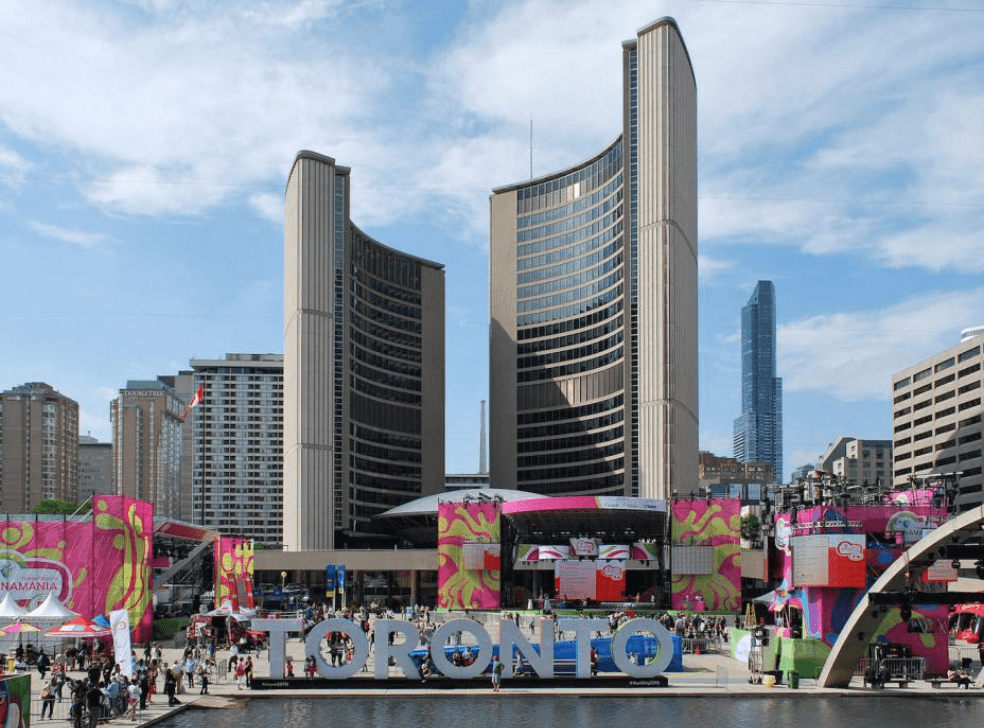If you're into right-wing, rabble-rousing, (and who isn't?) then I'm afraid I've got some bad news for you.
It seems the conservative-leaning Manning Centre (named after its founder, one-time Reform Party leader Preston Manning,) is abandoning the advocacy game.
As the group's vice president, John Whittaker, recently explained, "We are doing a reorganization. We're going to be primarily focusing on conferences going forward … We've determined our biggest value to the conservative movement is through networking and talking about best practices."
So in short, from now on the Manning Centre will be more talk, less action.
Not that there's anything necessarily wrong with that.
In fact, in my time, I've attended many conservative conferences where conservatives meet other conservatives to confer about conservatism, though most of my discussions on "best practices" at such events usually involved me and some friends debating baseball strategy in the hotel bar.
Yet, nevertheless, I can't help but think that it's a big mistake for a conservative group, like the Manning Centre, to go give up political activism so it can focus on talky passivism.
For one thing, political activism which I'd define as nitty-gritty street-level ideological combat, i.e. running attack ads, engaging in media guerrilla warfare and enthusiastically goring all the left's various sacred cows is great fun.
But more than that, just as sharks need to keep swimming to survive, conservative groups need to keep fighting.
Only through constant political warfare will they inspire both the undying love of their supporters and the unrelenting hatred of their opponents.
And by the way, in political activism, hatred is probably better than love.
I know this because for more than 20 years I oversaw the communication strategy of the National Citizens Coalition, which during its heyday in the 1980s and 1990s, was Canada's most powerful and influential conservative advocacy organization.
The reason I can say the NCC was "influential" and "powerful" is because back then that's how we were always labeled by our enemies.
Yup, it's true; our biggest political foes were also our best propagandists.
Every time left-wing journalists or socialist politicians or union bosses, wanted to publicly denounce us, they'd inevitably whine and complain about how the "well-funded", "corporate-backed", mighty NCC was using its massive media muscle to thwart progressivism in Canada.
So yeah, they made the NCC sound pretty awesome, even though, compared to political parties and to labour unions, it was in reality a modestly-funded group that relied more on media savvy than on media power.
And this is where hate comes into play.
Simply put, our enemies exaggerated the NCC's strength and influence, to justify their hatred of us and to encourage others to hate us too.
Of course, the reason they hated us, is because the NCC was constantly brawling and picking fights with left-wing elites; in effect, we made ourselves an annoying thorn in their side.
Mind you, I was OK with left-wing attacks; indeed, I welcomed them.
First off, getting attacked made it much easier for me to score news coverage for NCC media campaigns.
To show you what I mean, here's a transcript of me calling the media circa 1989: "Hello, News Director; I'm calling from the all-powerful, all-influential, corporate-funded, CIA-backed, much-hated, super-secretive, right-wing NCC, please give tons of free media publicity to the single 30 second attack ad we'll be airing just one time on some small-market radio station."
That pitch usually worked.
Plus, attacks on the NCC were great for fundraising.
All I had to do was write a fundraising letter to our base and say something like, "Did you see what *insert name of high-profile enemy here* said about us? He said the NCC was a powerful, right-wing group that was speaking too loudly and stridently on behalf of taxpayers. Clearly, we are having an impact! So send lots of money."
See how easy that is?
This is why, if our opponents really wanted to hurt the NCC and take some of the wind out of our fundraising and publicity sails, their best strategy wouldn't be to overtly hate us, but to ignore us.
And this is the problem I foresee with the Manning Centre's decision to give up fighting for the sake of conferencing; from now on, it'll be a group that's easy for both friend and foe to ignore.
Photo Credit: Macleans








